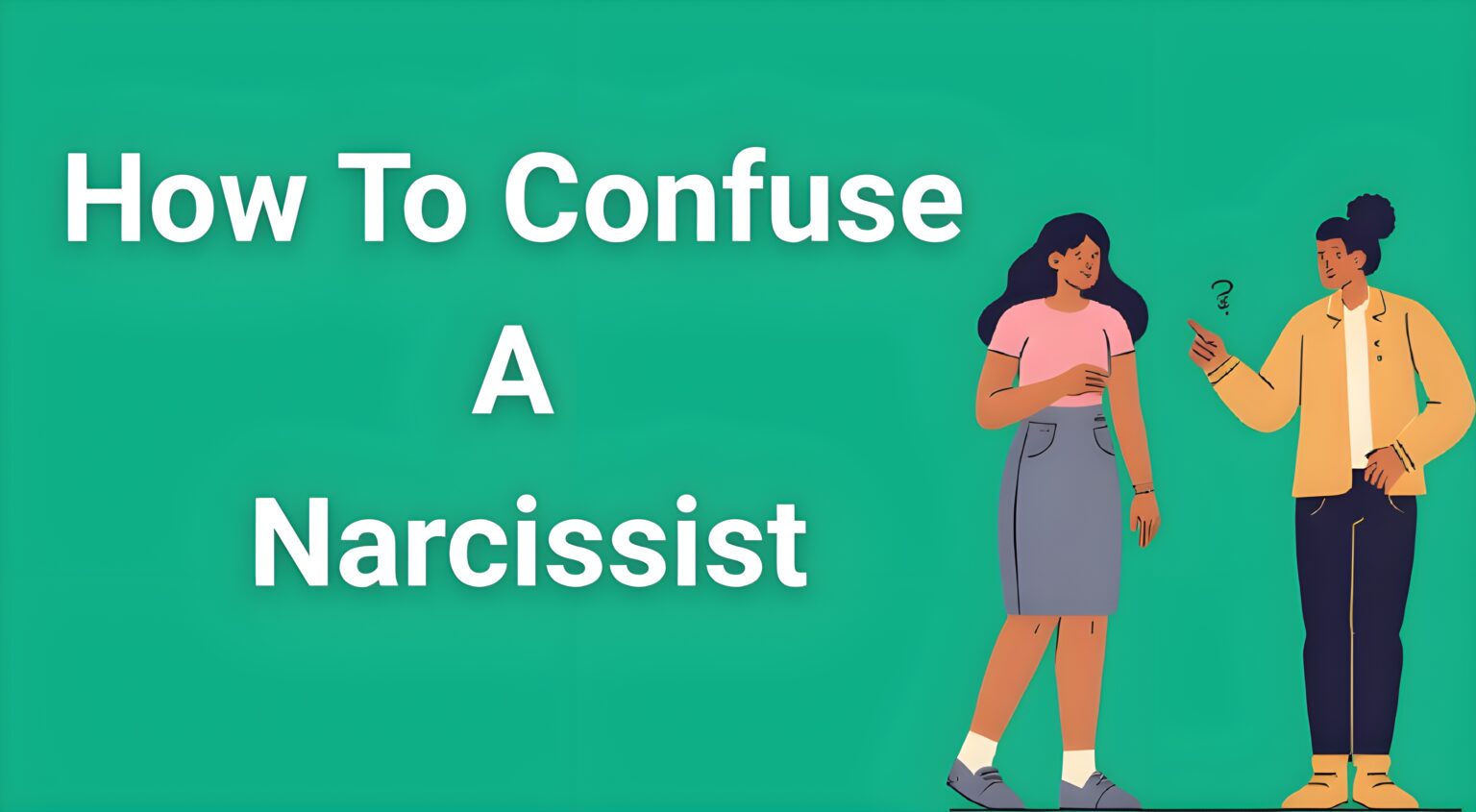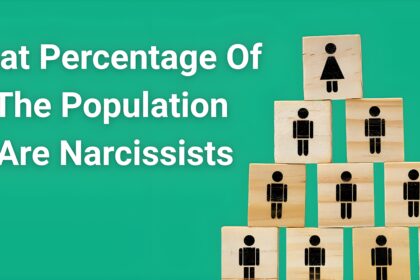If you’re wondering how to confuse a narcissist, you’re likely dealing with someone who’s been manipulating, gaslighting, and controlling you for far too long. The constant emotional rollercoaster, the walking on eggshells, the feeling like you’re losing your sanity – it all stems from their desperate need to maintain control over your thoughts, emotions, and reactions.
- Understanding the Narcissistic Mind: Why Confusion Works
- 12 Proven Tactics to Confuse a Narcissist
- When Confusion Tactics Backfire: Safety Considerations
- Understanding Your Specific Situation
- Breaking Free from Trauma Bonds
- When You Can’t Leave Yet
- Creating Long-Term Protection
- Frequently Asked Questions
- Conclusion
Understanding how to confuse a narcissist isn’t about revenge or playing games. It’s about survival, self-preservation, and reclaiming the power they’ve systematically stripped away from you. When you can’t simply walk away – whether due to co-parenting, family obligations, or workplace dynamics – these confusion tactics become essential tools for psychological protection.
Narcissists thrive on predictability. They’ve studied your responses, mapped your triggers, and crafted their manipulation strategies around your typical reactions. But what happens when you suddenly become unpredictable? When their carefully constructed control mechanisms no longer work? The result is confusion, frustration, and ultimately, a shift in the power dynamic that puts you back in the driver’s seat.
Understanding the Narcissistic Mind: Why Confusion Works
Before diving into specific tactics, it’s crucial to understand why confusing a narcissist is so effective. Narcissists operate from a place of deep insecurity masked by grandiose behavior. Their entire identity depends on maintaining an illusion of superiority and control over others.
Narcissistic personalities are built on several core needs: constant validation, predictable sources of attention (called narcissistic supply), and the ability to manipulate others’ emotions. When you disrupt these patterns by becoming unpredictable, you’re essentially pulling the rug out from under their psychological foundation.
The confusion you create forces them into unfamiliar territory where their usual manipulation tactics don’t work. This psychological discomfort often causes them to either escalate temporarily (which we’ll address) or eventually lose interest and seek easier targets for their toxic behavior.
12 Proven Tactics to Confuse a Narcissist
1. Master the Gray Rock Method
The gray rock technique is perhaps the most powerful tool for confusing narcissistic individuals. This method involves making yourself as boring and unresponsive as a gray rock – offering no emotional reactions that could fuel their need for drama and control.
When implementing gray rock, keep your responses minimal, neutral, and devoid of emotion. Answer questions with simple “yes,” “no,” or “I don’t know” responses. Avoid sharing personal information, opinions, or feelings that could be used against you later.
The confusion arises because narcissists expect emotional responses. When you consistently fail to provide the drama they crave, they become genuinely bewildered. They may initially escalate their behavior, trying harder to get a reaction, but persistence with this method often leads them to lose interest entirely.
2. Ask Unanswerable Questions
Narcissists believe they’re intellectually superior to everyone around them. Challenging this belief with carefully crafted unanswerable questions can create significant cognitive dissonance and confusion.
Try questions like: “What makes you think your opinion is more valid than everyone else’s?” or “How do you know your perception of this situation is completely accurate?” These questions force self-reflection that narcissists typically avoid, creating internal confusion and discomfort.
The key is asking these questions calmly and genuinely, not in an accusatory tone. Present them as sincere inquiries about their perspective, which makes them harder to dismiss or deflect.
3. Use Strategic Indifference
Nothing confuses a narcissist more than genuine indifference to their attempts at manipulation. When they try to provoke jealousy, anger, or fear, respond with complete emotional neutrality.
If they attempt to make you jealous by mentioning other people, simply respond with “That’s nice” or “Okay.” When they try to start arguments, refuse to engage by saying “If you say so” and walking away.
This strategic indifference cuts off their narcissistic supply – the emotional reactions they need to feel powerful and in control. The confusion stems from their inability to understand how their “foolproof” manipulation tactics are suddenly ineffective.
4. Implement Information Dieting
Narcissists use personal information as ammunition for future manipulation and control. Confuse them by drastically reducing the amount of personal information you share, a technique known as information dieting.
Stop discussing your feelings, plans, fears, or dreams with them. When they ask personal questions, deflect with neutral responses like “Things are fine” or “Nothing new to report.” This sudden lack of access to your inner world creates confusion because they can’t craft targeted manipulations.
Information dieting also includes avoiding discussions about other people in your life, your work situations, or any challenges you’re facing. Each piece of information you withhold is one less weapon they can use against you.
5. Establish Unpredictable Boundaries
While consistent boundaries are important for your protection, introducing some unpredictability in how you respond to boundary violations can create helpful confusion. Sometimes enforce boundaries immediately and firmly, other times choose not to react at all.
This inconsistency prevents them from developing a roadmap for manipulating your responses. They can’t predict whether crossing a boundary will result in confrontation, indifference, or complete disengagement, which keeps them off-balance.
The goal isn’t to be erratic, but to avoid being so predictable that they can plan their manipulation strategies around your typical responses.
6. Use Reverse Psychology Subtly
Narcissists often do the opposite of what you want simply to maintain control. Use this tendency against them by occasionally expressing mild preferences for things you actually don’t want them to do.
For example, if you want them to stop calling you constantly, you might casually mention how much you “enjoy” their frequent check-ins, knowing they’ll likely reduce the behavior just to avoid giving you what you appear to want.
This tactic requires finesse and should be used sparingly. The key is making your “preferences” seem genuine and casual, not obvious attempts at manipulation.
7. Respond with Unexpected Kindness
When narcissists expect anger or defensiveness from you, responding with unexpected kindness can create significant confusion. This doesn’t mean being a doormat, but rather choosing moments to respond with calm pleasantness when they’re clearly trying to provoke you.
If they insult you, you might respond with “I hope you have a better day” and walk away. This response denies them the confrontation they were seeking while demonstrating that their words don’t have the power to affect you negatively.
The confusion arises because this response doesn’t fit their mental model of how interactions should unfold. They expect either submission or retaliation, not composed kindness.
8. Implement Strategic Agreement
Sometimes agreeing with a narcissist’s unreasonable statements can create more confusion than arguing. When they make outrageous claims or accusations, try responding with “You might be right” or “That’s an interesting perspective.”
This approach deflates their desire for argument while avoiding direct confrontation. They’re prepared for denial or defensiveness, not casual agreement that doesn’t actually concede anything meaningful.
Strategic agreement works particularly well with their grandiose statements about themselves. Responding to their boasts with mild acknowledgment rather than the admiration they’re seeking can be deeply confusing to them.
9. Utilize Selective Attention
Pay attention to different things than what the narcissist expects. If they’re trying to get you to focus on their drama, instead comment on something completely unrelated in the environment.
When they’re in the middle of a manipulative rant, you might say “That’s an interesting painting on the wall” or “Did you hear that bird outside?” This selective attention demonstrates that their attempts at control aren’t capturing your mental focus.
This technique shows them that they don’t have the power to direct your attention, which is fundamentally confusing to someone who believes they should be the center of everyone’s universe.
10. Practice Strategic Forgetfulness
Narcissists often bring up past events, mistakes, or conflicts to manipulate current situations. Confuse them by demonstrating selective memory about these incidents.
When they reference past events, respond with genuine-seeming confusion: “I don’t really remember it that way” or “That doesn’t sound familiar.” This isn’t about lying, but about refusing to engage with their version of events that they’re using for manipulation.
This strategic forgetfulness prevents them from using your shared history as a weapon while creating confusion about their ability to influence your perception of reality.
11. Change Your Communication Style
If you’ve typically been emotionally expressive in your communication, suddenly adopting a more formal, business-like tone can be deeply confusing to narcissists. This change signals a shift in the relationship dynamic that they didn’t see coming.
Start communicating in facts rather than feelings. Replace “You hurt me when you…” with “That behavior is unacceptable.” Use professional language even in personal interactions when appropriate.
This communication shift demonstrates that you’re no longer operating from an emotional place they can exploit, which creates confusion about how to manipulate you effectively.
12. Employ Strategic Silence
Strategic silence is different from the silent treatment. While the silent treatment is punitive, strategic silence is simply choosing not to fill every pause in conversation or respond to every provocation.
When they make inflammatory statements, sometimes the most confusing response is no response at all. Simply continue with what you were doing without acknowledging their attempt to engage you in conflict.
This silence creates confusion because it doesn’t fit their model of how interactions should unfold. They expect either engagement or obvious avoidance, not casual indifference to their provocations.
When Confusion Tactics Backfire: Safety Considerations
While these confusion tactics can be highly effective, it’s crucial to understand that some narcissists may escalate their behavior when their usual manipulation strategies stop working. This escalation, known as an “extinction burst,” can temporarily make their behavior worse before it improves.
Signs that your safety might be at risk include: increased aggression, threats (veiled or direct), attempts to isolate you from support systems, or stalking behaviors. If you notice these escalations, prioritize your safety over implementing confusion tactics.
For those dealing with particularly volatile narcissistic individuals, having a comprehensive understanding of your specific situation becomes crucial. Professional assessment can help you determine which tactics are safe to use and when more protective measures might be necessary.
Understanding Your Specific Situation
Every narcissistic relationship has unique dynamics, manipulation patterns, and risk factors. What works in one situation might be dangerous in another. This is why many people benefit from getting professional analysis of their specific circumstances.
Getting clarity about exactly what type of narcissistic behavior you’re dealing with – whether it’s covert, grandiose, malignant, or vulnerable narcissism – can help you choose the most effective confusion tactics while avoiding strategies that might escalate dangerous behavior.
A comprehensive analysis can help you understand not just how to confuse the narcissist in your life, but also how to protect yourself, predict their behavioral patterns, and develop a long-term strategy for either managing the relationship or safely extracting yourself from it.
Breaking Free from Trauma Bonds
Many people find that even when they successfully confuse a narcissist and reduce their manipulative behavior, they still struggle with an inexplicable pull back toward the toxic relationship. This phenomenon, known as trauma bonding, creates an addiction-like attachment that makes leaving feel impossible.
Trauma bonds form through intermittent reinforcement – the unpredictable cycle of cruelty and kindness that narcissists use to maintain control. Your brain literally becomes addicted to the neurochemical highs and lows of this cycle, making the relationship feel necessary for survival even when you logically know it’s harmful.
Understanding trauma bonding is crucial because confusion tactics alone might not be enough if you’re biochemically addicted to the toxic relationship dynamic. Breaking these bonds requires specific strategies that address the neurological aspects of the addiction, not just the behavioral manipulation patterns.
Recovery from trauma bonding involves rewiring your brain’s response patterns through structured daily practices. This process typically takes consistent effort over several weeks, but it’s entirely possible to break free from these psychological chains permanently.
When You Can’t Leave Yet
Sometimes the most effective confusion tactics aren’t enough to completely neutralize a narcissist’s impact on your life, especially if you can’t leave the situation immediately. Whether you’re dealing with co-parenting requirements, financial dependence, family obligations, or other constraints, you may need additional survival strategies.
Living with or regularly interacting with a narcissist while you plan your exit requires a different set of skills than those used for occasional encounters. You need strategies for emotional protection, maintaining your sanity, documenting abuse patterns, and planning for eventual freedom – all while implementing confusion tactics to minimize daily harm.
The key is understanding that your current situation is temporary, even when it feels permanent. Having a clear roadmap for survival and eventual escape can provide hope and practical guidance during the most difficult phases of dealing with narcissistic abuse.
Creating Long-Term Protection
Successfully confusing a narcissist is often just the first step in a longer journey toward complete freedom from their influence. Long-term protection requires understanding how narcissists operate, recognizing their tactics before they take hold, and developing immunity to their manipulation attempts.
Building this immunity involves strengthening your sense of self, learning to trust your perceptions, and developing healthy relationships that provide genuine support and validation. It also means understanding your own vulnerabilities that made you susceptible to narcissistic manipulation in the first place.
Many people find that recovery from narcissistic abuse involves not just dealing with the current situation, but also healing from past experiences that created susceptibility to this type of manipulation. This healing process often reveals patterns that began in childhood or previous relationships.
The goal isn’t just to confuse the current narcissist in your life, but to become the type of person who naturally deflects narcissistic manipulation attempts and attracts healthier relationship dynamics.
Frequently Asked Questions
Q: Will these confusion tactics work on all types of narcissists?
A: Different narcissistic subtypes respond differently to various tactics. Covert narcissists might be more affected by indifference strategies, while grandiose narcissists might be more confused by unexpected kindness. Understanding your specific situation helps determine which tactics will be most effective.
Q: How long does it take for confusion tactics to work?
A: Some people see immediate changes in the narcissist’s behavior, while others experience an initial escalation before improvement. Consistency is key – most tactics require several weeks of consistent application to see lasting changes.
Q: Is it safe to use these tactics if I live with the narcissist?
A: Safety should always be your first priority. Some tactics are safer than others in close living situations. If you’re concerned about escalation or retaliation, consider getting professional guidance before implementing these strategies.
Q: What if the narcissist accuses me of being manipulative for using these tactics?
A: Narcissists often project their own behaviors onto others. Using these tactics for self-protection is fundamentally different from using manipulation for control or exploitation. Trust your intentions and maintain your boundaries.
Q: Can these tactics help with narcissistic parents or adult children?
A: Yes, these tactics can be adapted for family relationships. However, family dynamics often require modified approaches, especially when dealing with elderly parents or when trying to protect children from narcissistic behavior.
Q: What should I do if the narcissist escalates their behavior?
A: Escalation is sometimes a temporary response to losing control. However, if you feel unsafe, prioritize your safety over implementing confusion tactics. Having a safety plan and support system is crucial before beginning these strategies.
Conclusion
Learning how to confuse a narcissist represents a fundamental shift from victim to survivor. These tactics aren’t about playing games or seeking revenge – they’re about reclaiming your power and protecting your psychological well-being from someone who has been systematically undermining both.
The journey from confusion and self-doubt to clarity and confidence isn’t always linear. There will be moments when you question your perceptions, feel guilty for setting boundaries, or worry about the narcissist’s reactions to your new approach. These feelings are normal parts of the recovery process.
Remember that you didn’t choose to be in this situation, but you do have the power to choose how you respond to it. Every time you successfully confuse a narcissist’s manipulation attempt, you’re rebuilding your sense of agency and self-worth. Each boundary you maintain, each emotional reaction you withhold, and each tactical response you employ is a step toward freedom.
Your journey toward healing and empowerment is unique, but you don’t have to navigate it alone. Whether you’re just beginning to recognize narcissistic patterns in your relationships or you’re deep into the process of extracting yourself from toxic dynamics, understanding your specific situation and having the right tools can make all the difference between continued suffering and genuine liberation.
The confusion tactics outlined here are powerful tools, but they’re most effective when used as part of a comprehensive understanding of your situation and a clear plan for your future. You deserve relationships based on respect, genuine care, and mutual support – and every step you take toward confusing manipulative behavior brings you closer to that reality.






